Do Cashews Contain Iron? How Much Iron Is In Cashews?
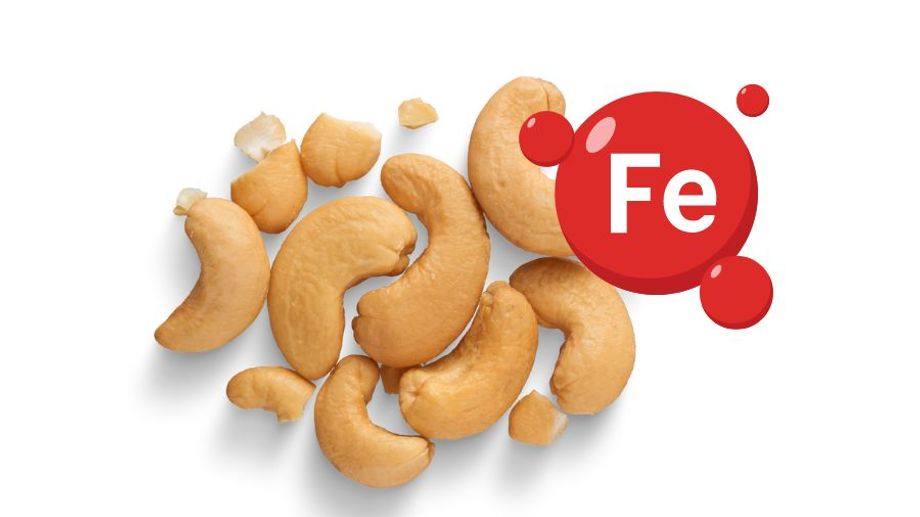
Mục lục
Iron is one of the essential biological components of all living organisms. In the human body, iron is also one of the important trace minerals. This article will introduce information about whether cashews contain iron or not. What is iron included? Uses, dosage of iron in cashews, iron-rich foods.
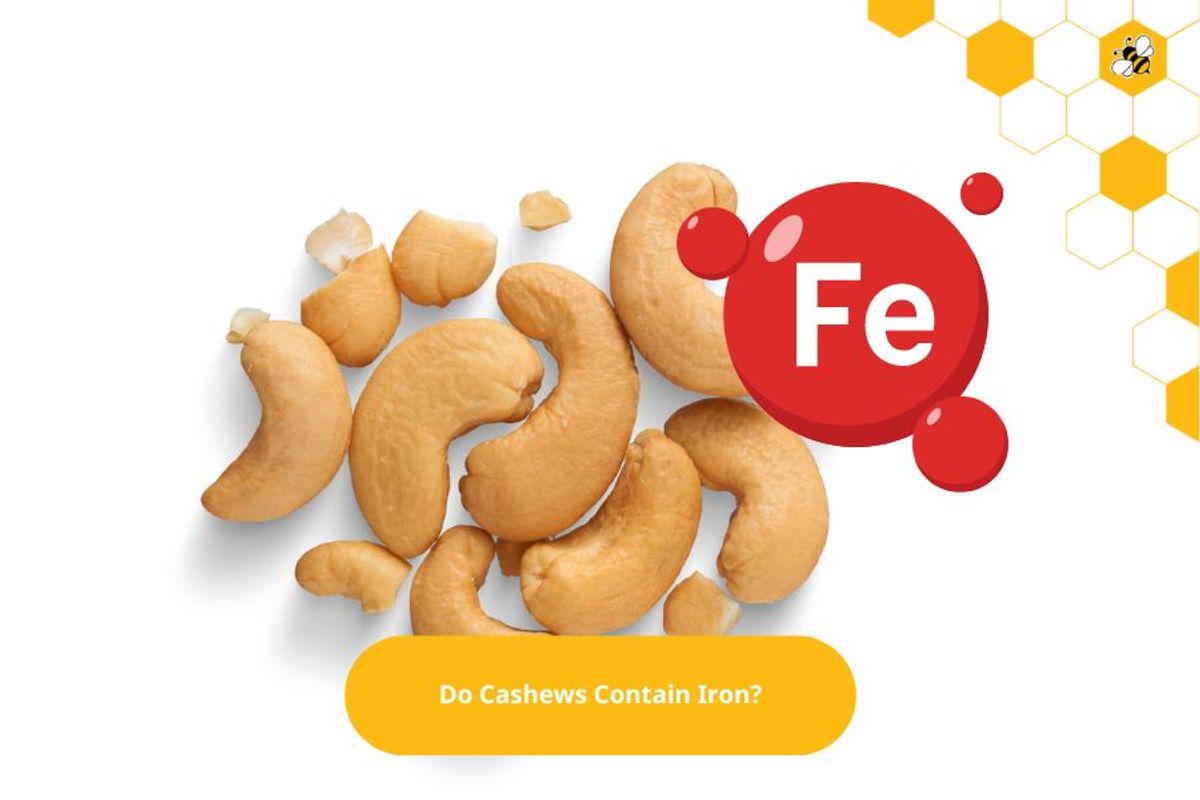
Do Cashews Contain Iron? How Much Iron Is in Cashews
Cashews are a good source of many nutrients, including iron. Here is information about the amount of iron in cashews:
Every 100 grams of raw, processed cashews contains about 6.68 mg of iron.
Iron is an essential mineral for the human body. It is involved in transporting oxygen in the blood, supporting the immune system, and maintaining good health.
In addition to iron, cashews also contain many other nutrients such as magnesium, phosphorus, potassium, and other vitamins.
Every 100 grams of raw, processed cashews contains about 6.68 mg of iron.
Iron is an essential mineral for the human body. It is involved in transporting oxygen in the blood, supporting the immune system, and maintaining good health.
In addition to iron, cashews also contain many other nutrients such as magnesium, phosphorus, potassium, and other vitamins.
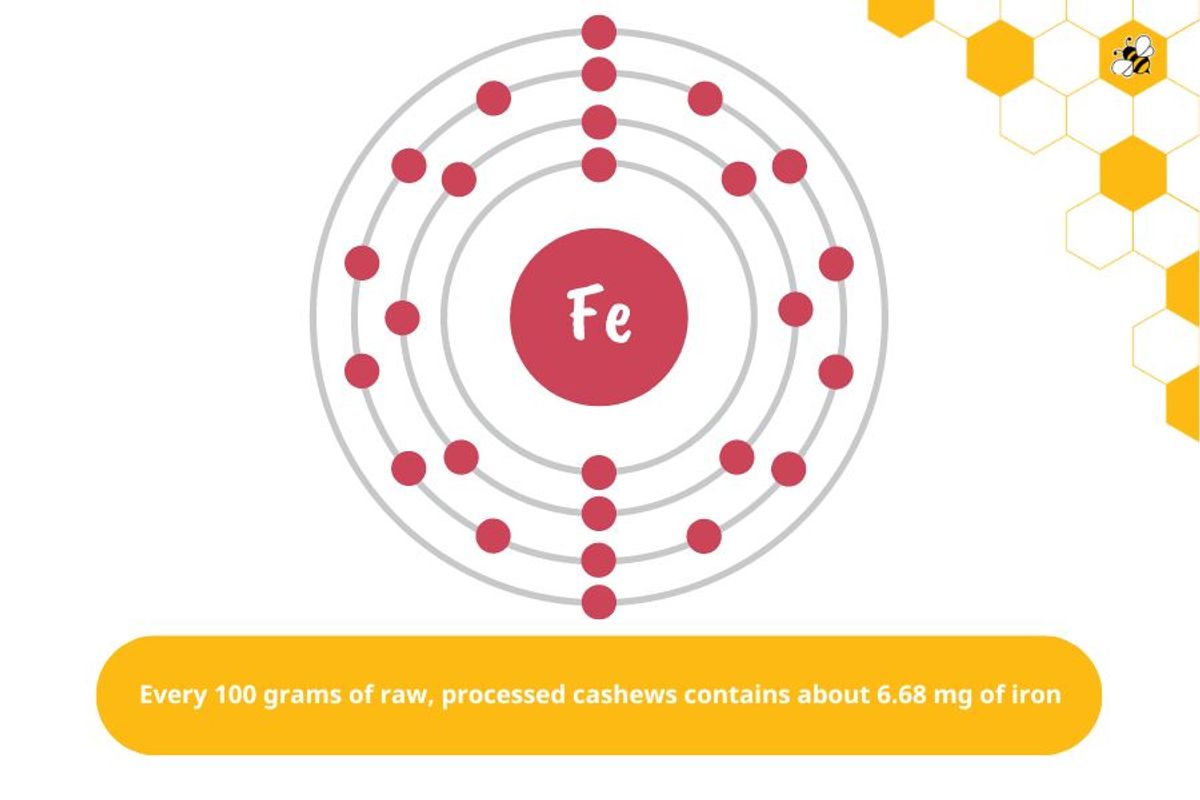
What is iron?
Iron is a very common element in nature, most importantly in electron transport. Iron is a factor that plays a role in controlling the process of DNA synthesis. Efficient processes will allow living organisms to transport and store this poorly soluble but highly active element.
Iron is one of the important components, iron plays a major role in the synthesis of hemoglobin (the substance that transports oxygen to cells in the body) and myoglobin (the substance that stores oxygen for the body). In addition, iron is also a component that participates in several redox enzymes such as peroxidase, catalase, and cytochromes (important biological catalysts in the body). Iron plays an important role in the production of oxidative energy, oxygen transport, mitochondrial respiration, and inactivation of harmful oxygen radicals. Especially for pregnant women, iron will help create a healthy and safe pregnancy. To ensure adequate iron needs during pregnancy, a woman's body must have an iron reserve of at least about 300 mg before pregnancy.
Iron is one of the important components, iron plays a major role in the synthesis of hemoglobin (the substance that transports oxygen to cells in the body) and myoglobin (the substance that stores oxygen for the body). In addition, iron is also a component that participates in several redox enzymes such as peroxidase, catalase, and cytochromes (important biological catalysts in the body). Iron plays an important role in the production of oxidative energy, oxygen transport, mitochondrial respiration, and inactivation of harmful oxygen radicals. Especially for pregnant women, iron will help create a healthy and safe pregnancy. To ensure adequate iron needs during pregnancy, a woman's body must have an iron reserve of at least about 300 mg before pregnancy.
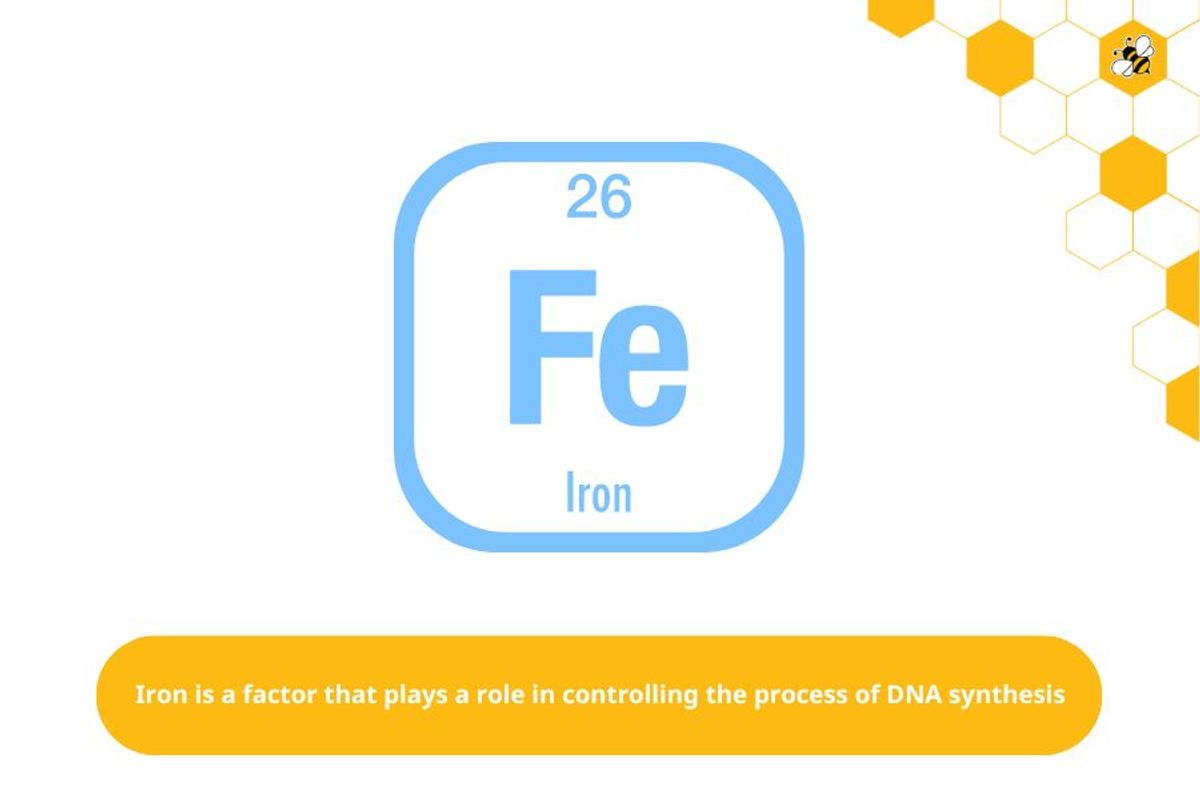
Another consequence of iron deficiency is the high risk of absorbing lead from the digestive tract, causing lead poisoning in the body. The living environment in Vietnam is currently very polluted, with dust and smoke containing very high levels of lead. Therefore, children with iron deficiency are also at high risk of lead poisoning, which can easily damage the blood regeneration system and central nervous system. The main subjects most commonly affected by iron deficiency are women, especially pregnant women and children. The cause is due to the body's poor absorption of iron, due to parasitic infections, allergies, menstruation, etc., or the body's needs are too high during certain stages of growth and rapid recovery after illness. Therefore, iron deficiency will cause iron deficiency anemia and will affect cell metabolism due to a lack of iron-containing enzymes. On the contrary, if iron is overloaded in the body, it will also cause iron accumulation in tissues such as the heart, endocrine glands, liver, etc., leading to serious dysfunction of these organs.
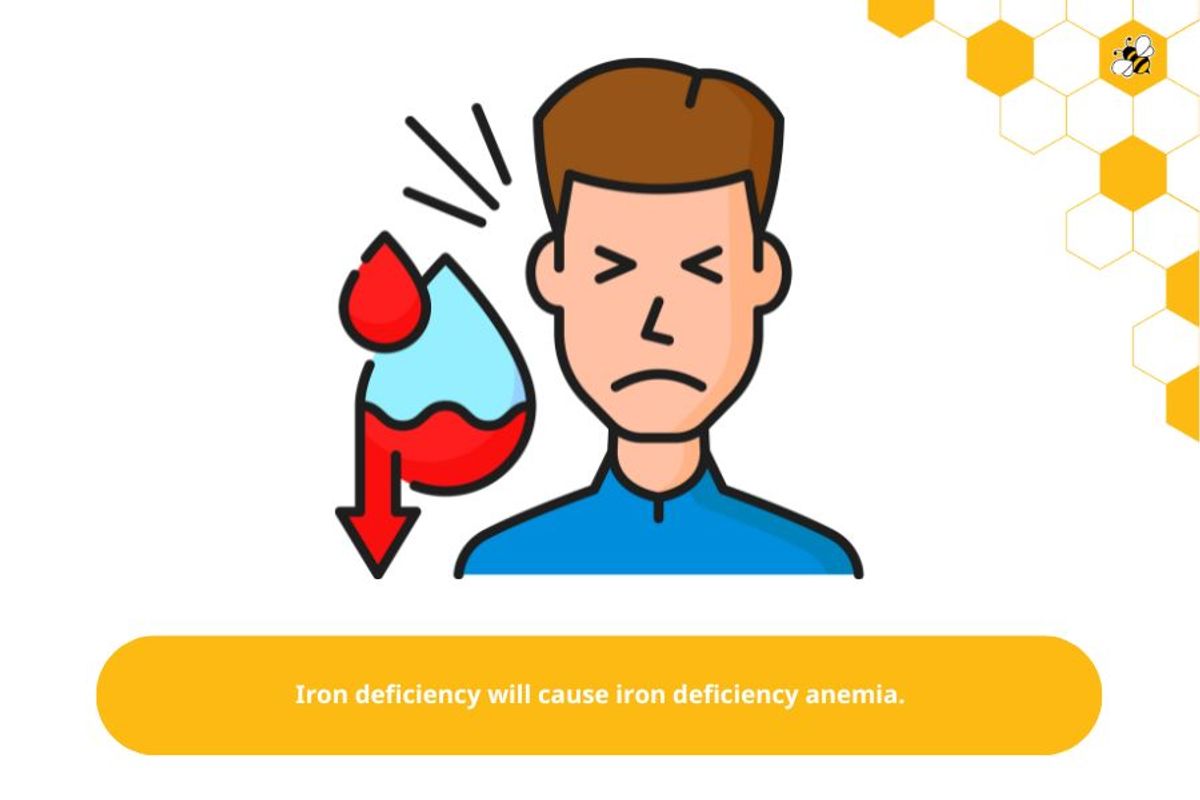
Hemochromatosis is a disorder caused by the body absorbing too much iron from the food you eat, leading to an excessive concentration of iron in the blood. It can cause serious health problems when your body has no way to get rid of the excess iron. Excess iron accumulates in the liver, heart, pancreas, and joints.
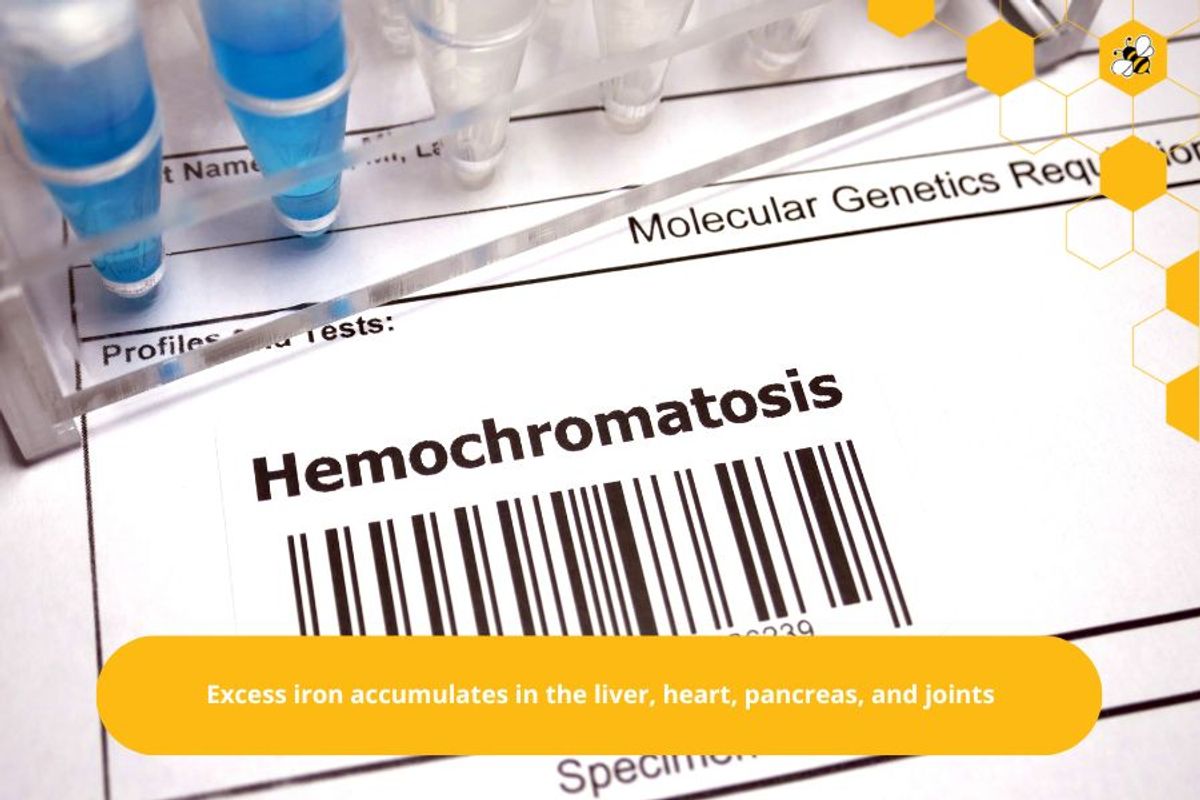
The effects of iron on the body
Iron is a very important element in the human body. Here are some effects of iron:
Create healthy red blood cells
Iron helps create red blood cells, an important part of blood, to transport oxygen from the lungs to cells in the body.
Iron is the main component of hemoglobin, an iron-rich protein, and the main component of red blood cells. Hemoglobin has the role of transporting oxygen from the lungs to cells and tissues throughout the body. When the body lacks iron, the production of hemoglobin is affected, leading to anemia.
Iron is the main component of hemoglobin, an iron-rich protein, and the main component of red blood cells. Hemoglobin has the role of transporting oxygen from the lungs to cells and tissues throughout the body. When the body lacks iron, the production of hemoglobin is affected, leading to anemia.
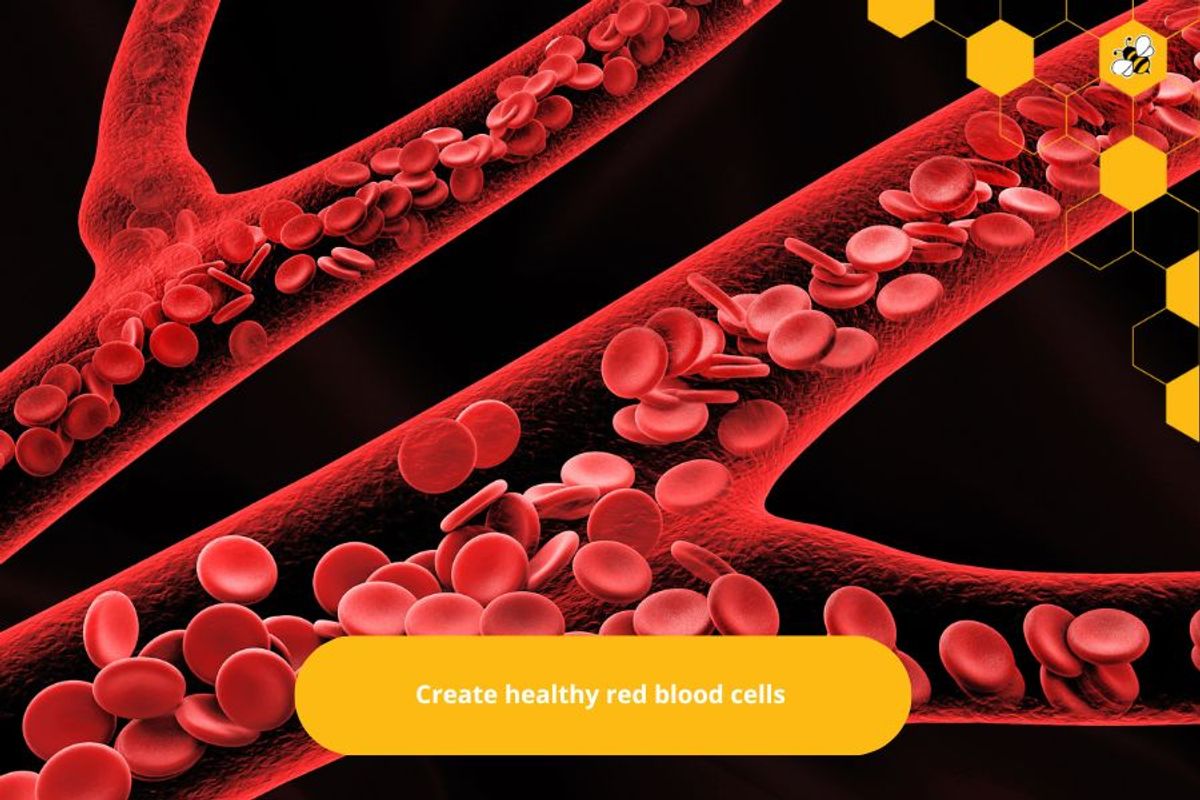
Improve muscle function
Iron participates in the process of cellular respiration, helping muscles function effectively.
Iron participates in the process of creating ATP, the energy source for muscles. Providing enough iron helps your muscles to be strong and elastic. In addition, the process of transporting oxygen by hemoglobin also affects muscle contraction.
Iron participates in the process of creating ATP, the energy source for muscles. Providing enough iron helps your muscles to be strong and elastic. In addition, the process of transporting oxygen by hemoglobin also affects muscle contraction.
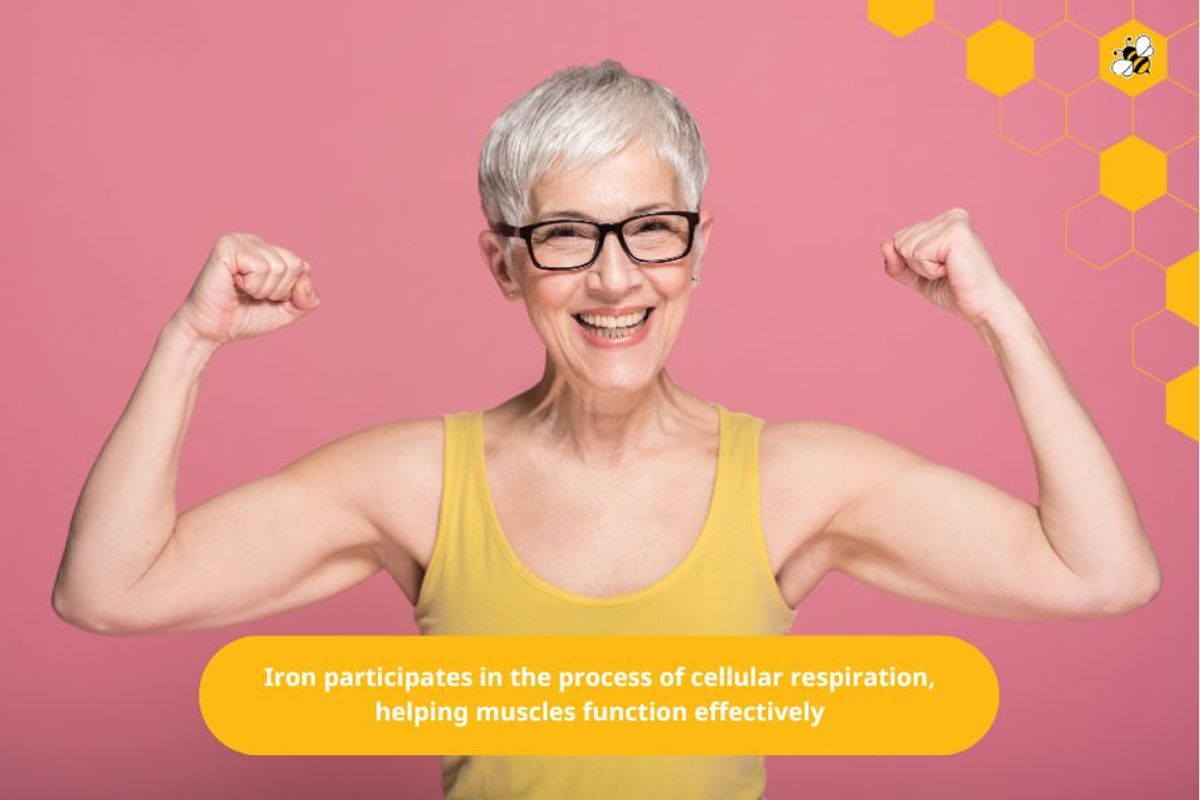
Enhance brain function
Iron plays an important role in transporting oxygen to the brain, improving cognitive function, and increasing concentration.
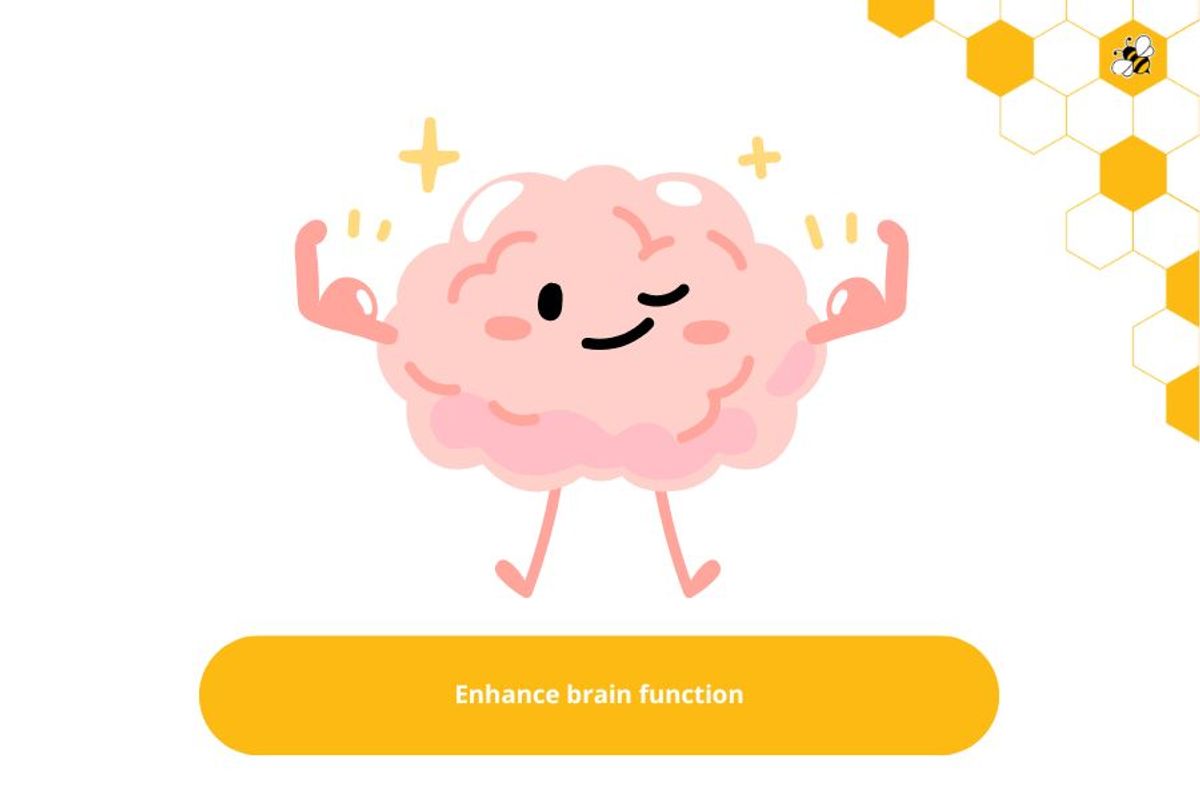
Regulating body temperature
Iron is involved in the regulation of body temperature. Iron also plays an important role in regulating body temperature. Interestingly, iron can regulate temperature according to the body's absorption capacity. Keeping the body temperature stable means that the function of enzymes and metabolic processes can occur in the environment and at the most optimal and effective temperature.
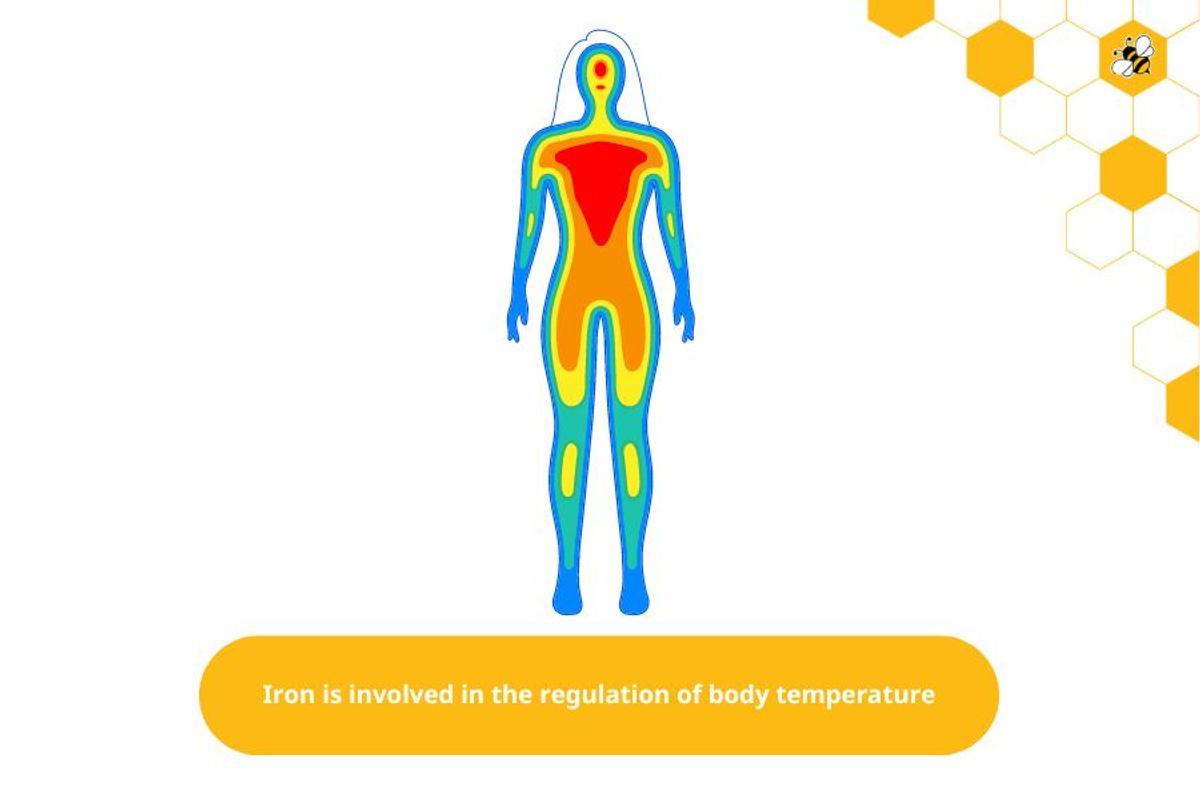
Oxygen carrier
Iron is the main component of hemoglobin and myoglobin, which helps transport and store oxygen for the body. Iron plays a very important role in the body, it is an essential element in creating hemoglobin, which is the substance that creates the red color of red blood cells and will have the task of transporting oxygen (oxygen) and CO2 (carbon dioxide) during respiration. Therefore, iron is one of the minerals that need to be provided sufficiently every day.
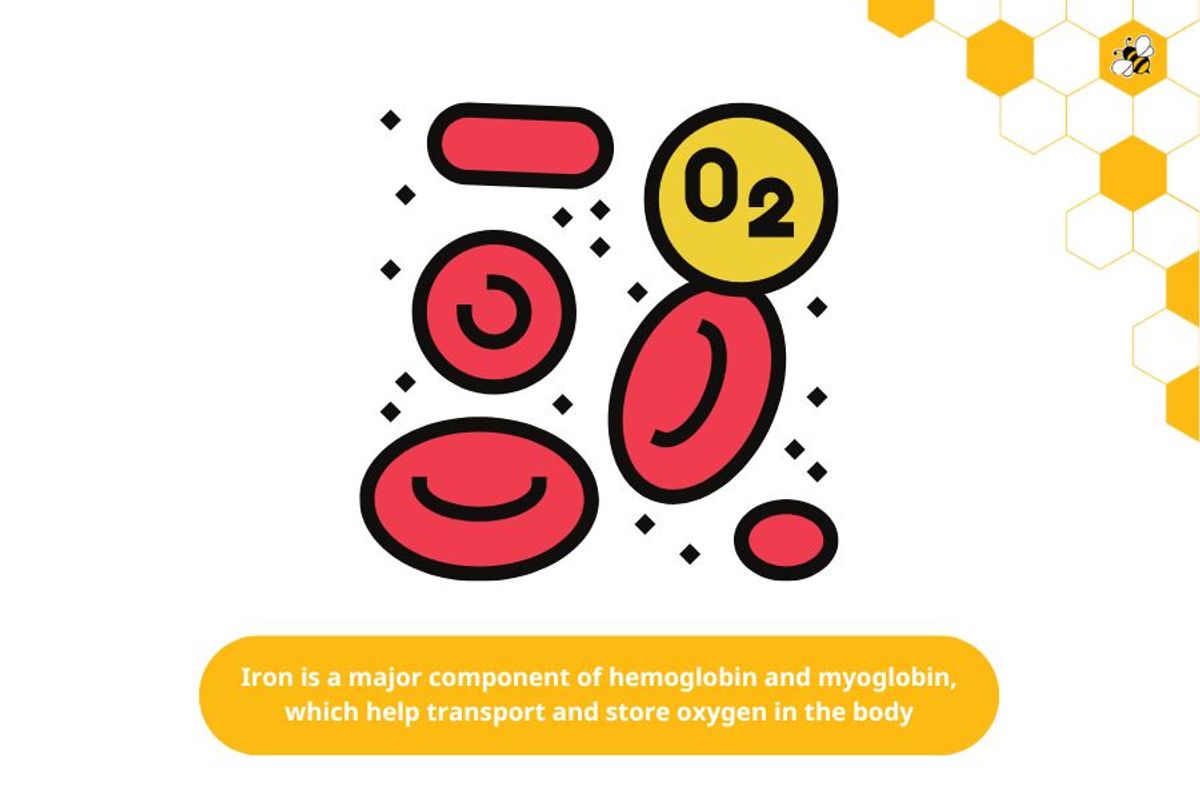
Reduces anemia
Iron is important in preventing iron deficiency anemia.
Fights chronic diseases
Iron plays a role in the immune system and helps the body fight chronic diseases.
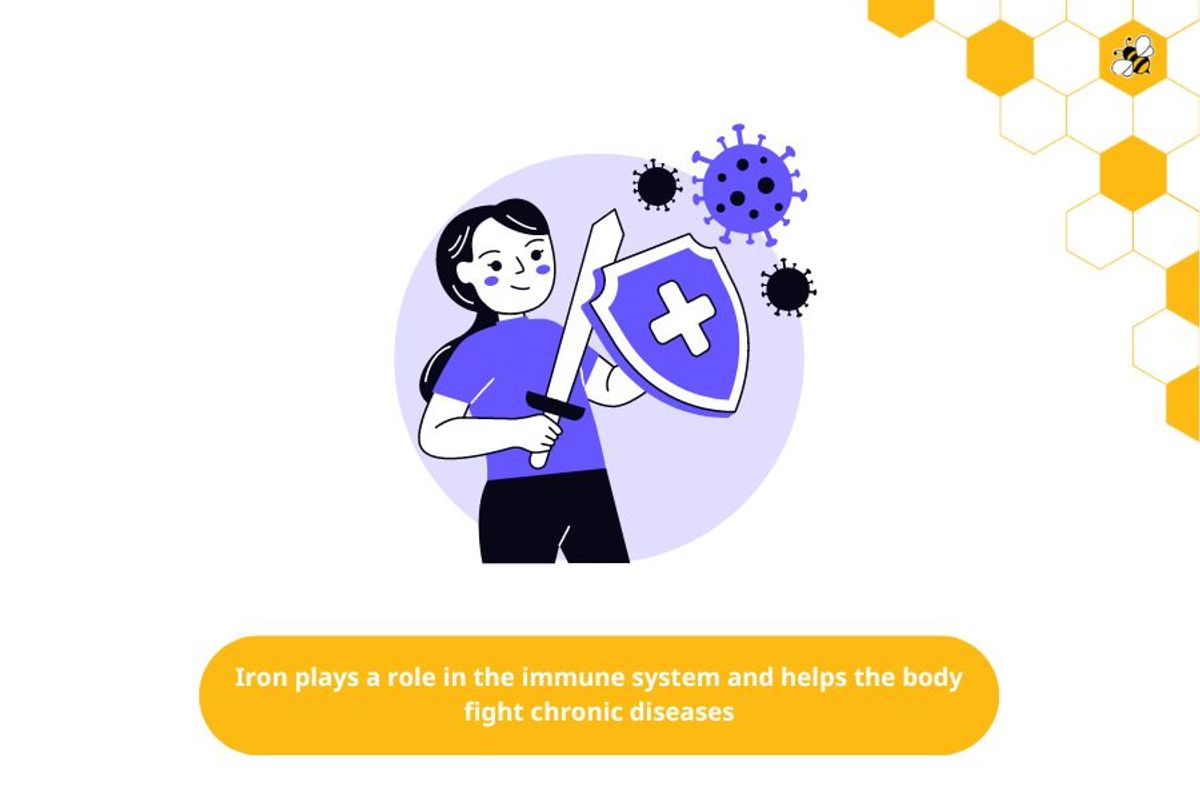
How to Include Cashews in Your Diet to Get the Right Amount of Iron
Cashews are a great source of many nutrients, and they provide a significant amount of iron. Including cashews in your diet can help you get the right amount of iron. Some suggestions:
Cashews: Cashews are high in iron and are a good choice for supplementing this nutrient. You can eat cashews as a snack or add them to other dishes.
Green vegetables: Dark green leafy vegetables such as broccoli, spinach, and asparagus are also good sources of iron.
Grains: Almonds, walnuts, and pine nuts also contain iron and can be added to your daily diet.
Cashews: Cashews are high in iron and are a good choice for supplementing this nutrient. You can eat cashews as a snack or add them to other dishes.
Green vegetables: Dark green leafy vegetables such as broccoli, spinach, and asparagus are also good sources of iron.
Grains: Almonds, walnuts, and pine nuts also contain iron and can be added to your daily diet.
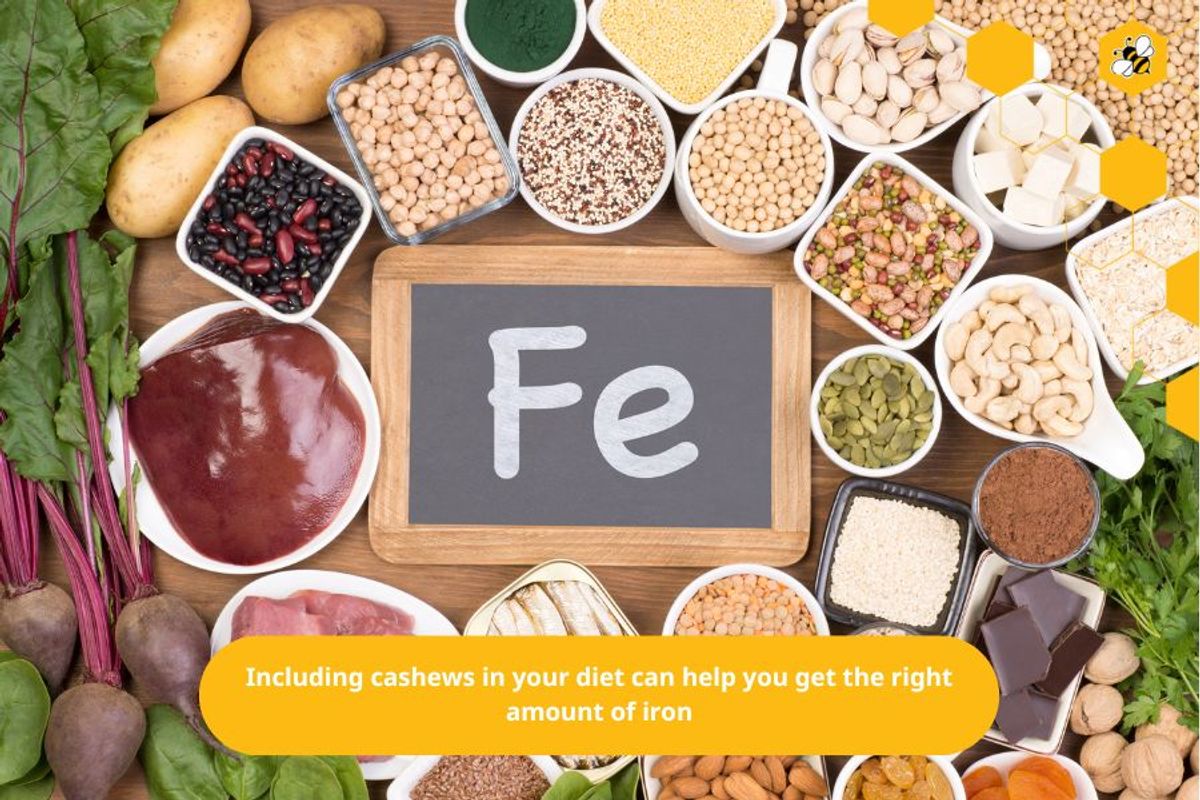
Remember to combine cashews with other foods to ensure adequate iron supply for the body!
Summary
Iron plays a very important role in the body's function. Iron forms hemoglobin to transport oxygen from the lungs to all other organs; participates in the formation of myoglobin - a respiratory pigment of the muscle; participates in the process of electron transport and participates in the structure of many enzymes in the immune system to create energy in most types of cells.
At any age, iron deficiency and nutritional anemia will affect the entire physical and mental development of the body. Therefore, timely detection and treatment are extremely important.
At any age, iron deficiency and nutritional anemia will affect the entire physical and mental development of the body. Therefore, timely detection and treatment are extremely important.